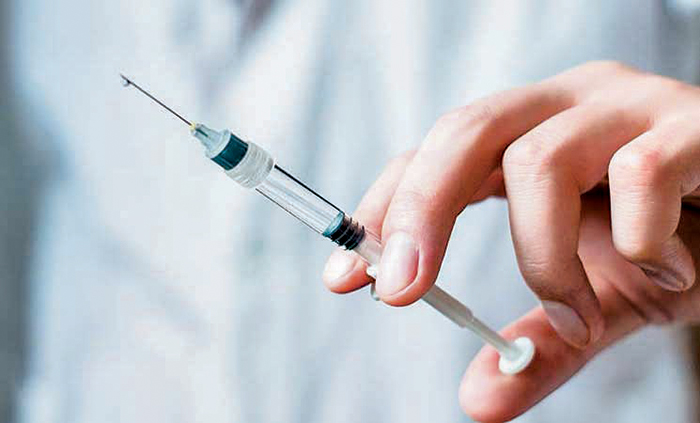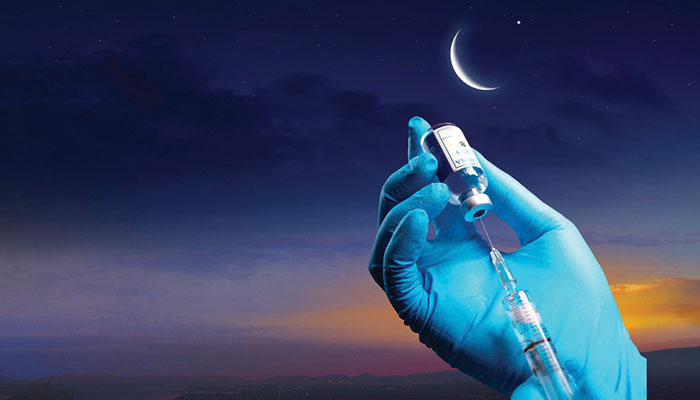

Muscat: With just a few days left before Ramadan begins, the Assistant Grand Mufti of Oman has said it is safe for those who are fasting to be vaccinated, and doing so will not go against the rules of the Holy Month.
With Oman’s nationwide COVID-19 vaccination drive currently underway, many of those who will be fasting during the day have wondered whether being administered the vaccine will lead to their fasts considered broken.
“After reviewing the documentation concerning these vaccines – namely the Oxford AstraZeneca and Pfizer/BioNTech injections – the conclusion is that they will have no effect on a person’s fasting,” said Sheikh Dr. Kahlan Al Kharusi, the Assistant Grand Mufti.
“This is because a person who receives the AstraZeneca injection is given a 0.5ml dose, while a single dose of the Pfizer vaccine is of 0.3ml.
“Regardless of the contents of the vaccine, this is a very small amount,” he added. “There is a ruling under Islamic Sharia that pardons people who take vaccines such as this or any other, because it involves injecting medicines into the muscle in very small amounts.”
With the coronavirus pandemic having impacted many aspects of people’s lives, including their economic conditions, way of living, social interactions, and work, Sheikh Kahlan asked people in the country to take the vaccine when they are offered, so that life can soon return to normalcy.
“God blessed humanity with the ability to discover vaccines that help protect against pandemics,” he said.
“We have seen that some people choose to delay being administered the vaccine, because they believe unfounded rumours and falsification of truths. Scientists and doctors from our country, as well as organisations from the rest of the world, have spoken about the dangers of this pandemic, and the importance of taking the vaccine.
“Why would a sane person hesitate from taking a vaccine if, God willing, it can protect him from the harm of the virus?” he added. “How can you, on the one hand, demand a return to normalcy, but refuse to take the very vaccine that helps everyone, and facilitates a return to the normal life we had before the outbreak of the pandemic?”
The Assistant Grand Mufti requested people to not spread rumours, because of the panic it would create in society, as well as asked those in the country to not blindly believe them.
Those who look for evidence that the vaccine was necessary, he added, needed to look only at the country’s medical professionals, who were willingly risked their own lives to take care of COVID-19 patients, and did not hesitate from taking the vaccine, once it arrived, so that they could continue to look after them.
“They were the first to take the vaccine, relying on the correct information published by local government and international authorities,” he added.
“A lot of time, money, and energy has been spent by people all around the world, just for the sake of diagnosing this disease and finding a suitable vaccine to protect us against it,” he said.
“When an ignorant person says he will not take the vaccine because he is influenced by fake news and false rumours, he is only inflicting harm on himself, and prolonging the suffering of others and is contributing to it spreading, instead of helping fight towards its elimination,” said Al Kharusi.
He asked people to not be lazy or negligent when it came to taking vaccines during the Holy Month of Ramadan.
Instead, given the spirit of the month, it is important that those who take the vaccine become examples for others to follow.
“Taking the vaccine will help all of us to return to our places of worship, meet normally, and allow us to visit our relatives,” the Assistant Grand Mufti said.
“Even if you aren’t as concerned about your own welfare, then do be considerate towards the welfare of others, your neighbours, and your relatives. Do it for those who have followed the rules made to stop the spread of the virus, and chose not to listen to false news and gossip.”